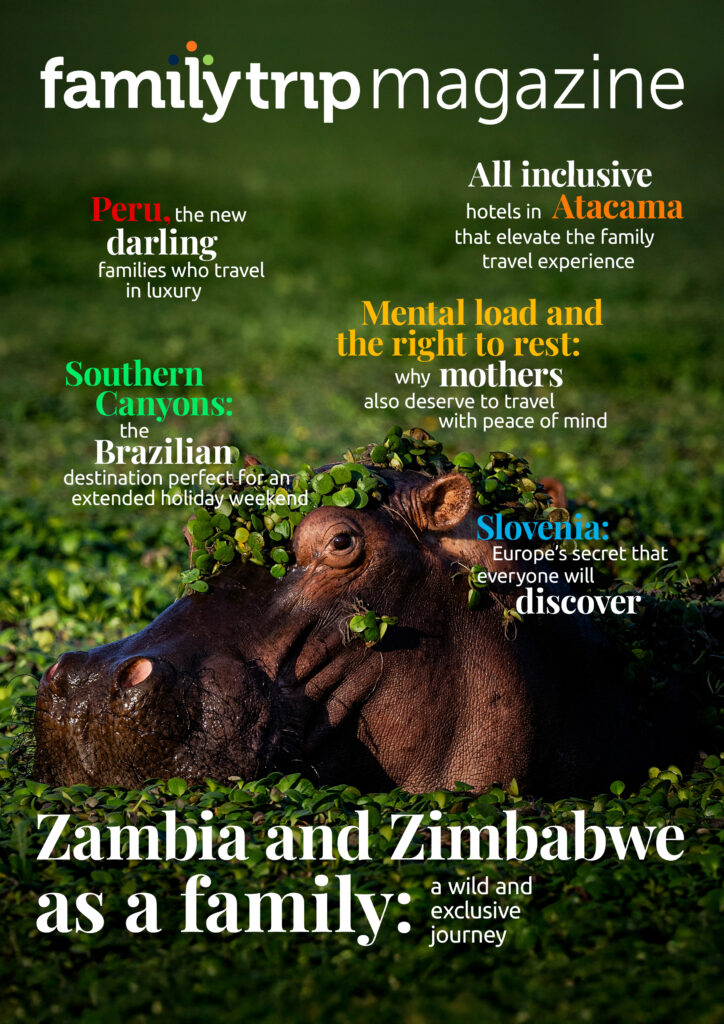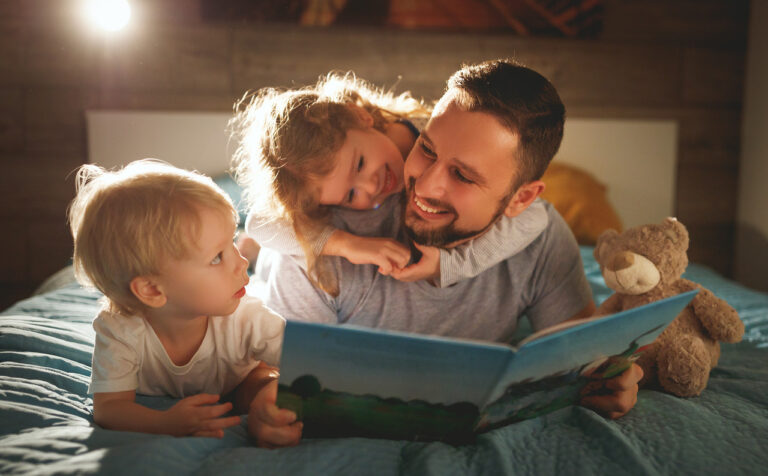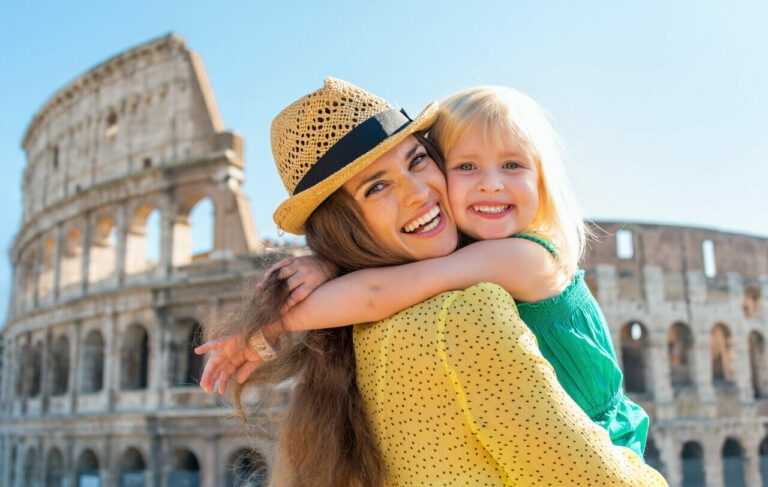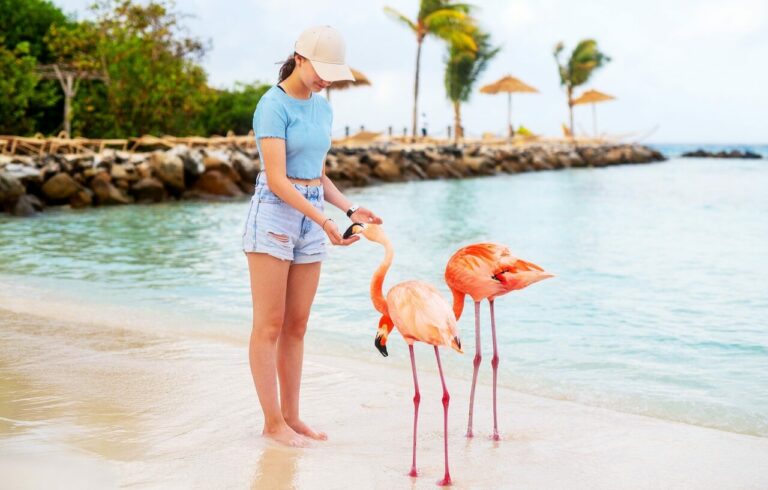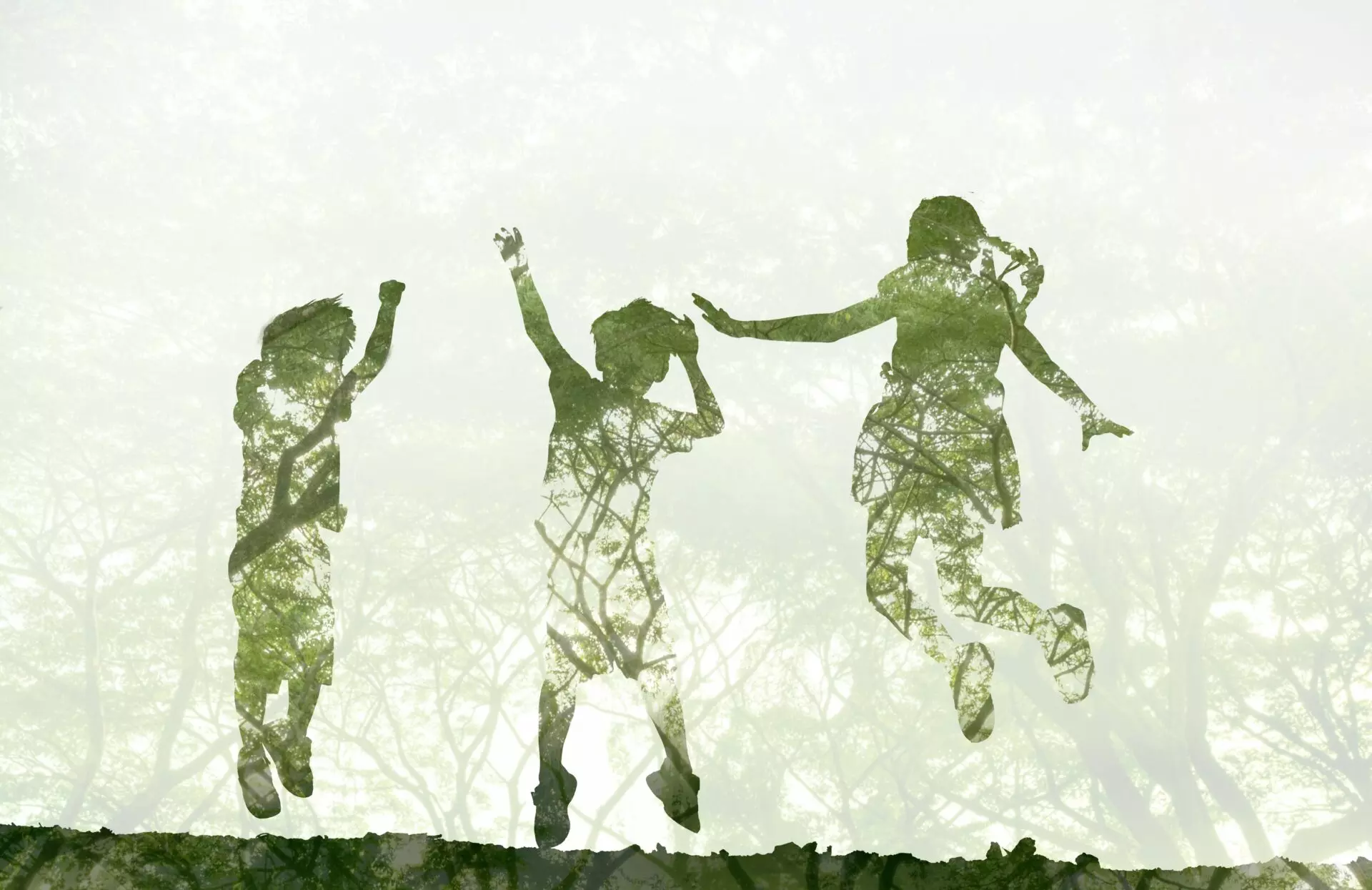
- Health
Contact with nature benefits children’s development in all dimensions
In an increasingly fast-paced and digital routine, outdoor activities become more and more important for complete physical and mental well-being in childhood
By Diego Paiva
In a world dominated by screens and a frantic pace, children need nature more than ever for complete development. Yet many families, especially those living in urban areas, end up limiting most of this experience to leisure moments during vacations or trips. City life, with tight schedules, lack of green areas, and safety issues, makes it difficult to include nature in daily life. Despite these challenges, it’s crucial to incorporate the natural environment into children’s daily routines, as it offers profound benefits, positively influencing little ones’ growth, learning, and health – not just physical, but mental as well.
The importance of this contact became even more evident during the pandemic, when many children faced difficulties due to restrictions on leaving home. The research “The Role of Nature for Children’s Health Post-Pandemic” conducted by the Social Knowledge Network and the Child and Nature Program, with the initiative of Instituto Alana and support from WWF-Brasil and the Bernard van Leer Foundation, revealed that isolation and lack of contact with nature led to a set of negative effects. Of the more than one thousand families surveyed, 24% reported an increase in physical problems, such as obesity and vitamin deficiency, while 60% pointed to a significant increase in children’s use of electronic devices.
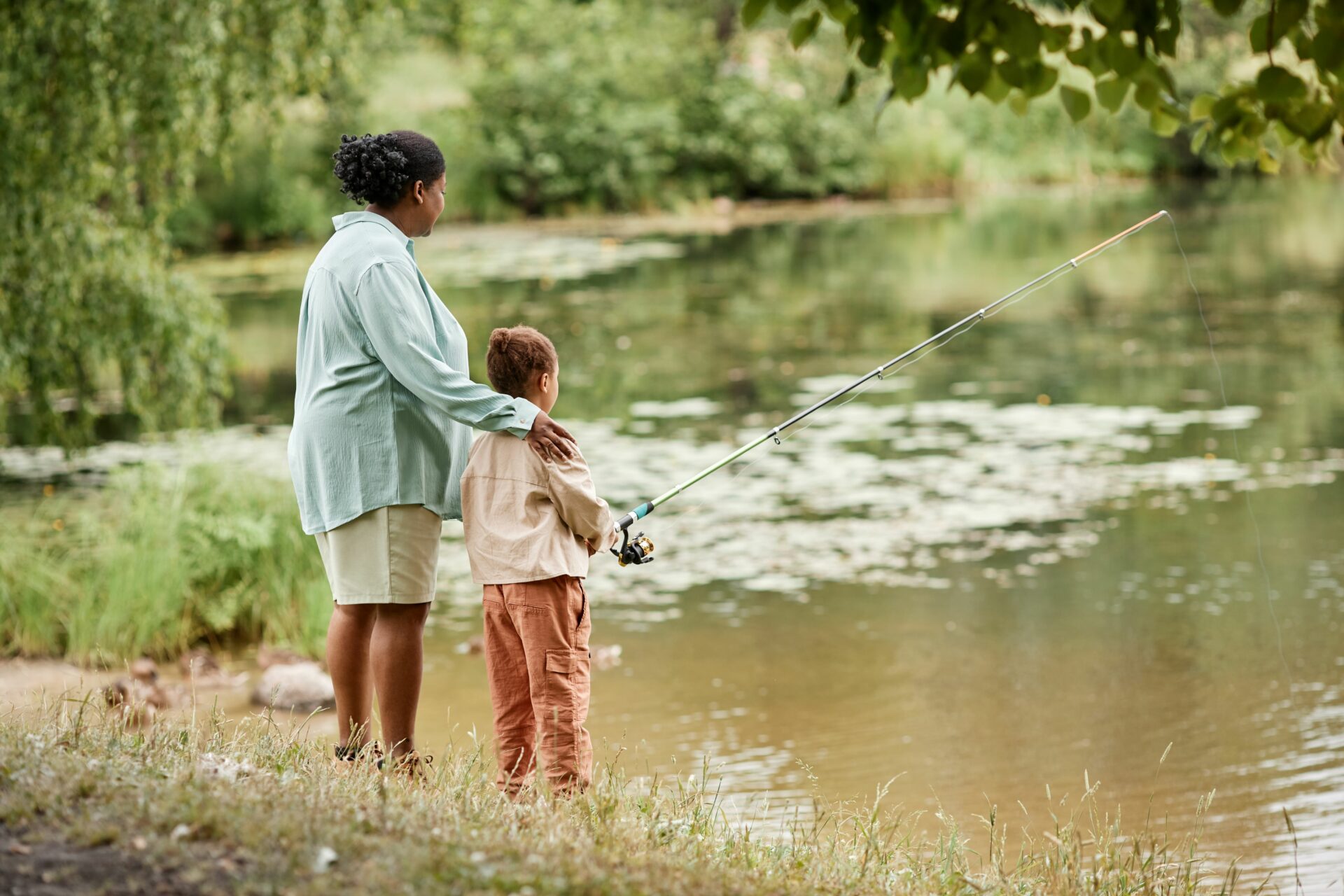
This data underscores the importance of creating constant opportunities for children to interact with nature. Outdoor activities, such as hiking, observing animals and plants, and simply spending time in parks, already bring numerous benefits to health and well-being. They strengthen muscles, improve motor coordination, combat sedentary lifestyle, and even boost the immune system. But the positive impacts don’t stop there. The lush green of the forest, the relaxing sound of ocean waves, and the pure air of mountains provide a natural refuge that not only relieves stress and anxiety in general but also has the potential to alleviate some symptoms of neurodevelopmental conditions, such as ADHD (attention deficit hyperactivity disorder) and ASD ( ). All children who have regular contact with nature tend to become calmer, more peaceful, happier, and have better sleep quality.
When contact with nature involves play, the benefits are even greater. The natural environment is a living laboratory, full of mysteries to be unraveled and unlimited learning opportunities. By exploring it in a playful way, children more easily develop curiosity, creativity, critical thinking, and problem-solving skills. And when done in groups, nature play gains additional meaning. Social interaction and collaboration among participants further enrich the outdoor experience, creating moments of genuine connection and strengthening bonds between family and friends. These group interactions also encourage teamwork, effective communication, and empathy. Children learn to share toys, negotiate rules, resolve conflicts, and strengthen bonds while developing a deep sense of environmental responsibility, making them become adults ready to value, protect, and defend the planet.
Challenges and solutions to encourage children’s contact with nature
Access to nature in contemporary cities represents a growing challenge. The scarcity of green areas and safe public spaces limits opportunities for outdoor activities and play, depriving children of experiences for their full development. In this context, urban planning assumes a crucial role in promoting children’s health and building more sustainable cities. The creation and revitalization of parks, squares, and green areas, transformed into inviting environments for play and learning, are measures that should be considered in new public policies and master plans. Parks with natural playgrounds, vertical gardens on buildings, and green roofs that provide shade are great alternatives to be considered to cushion environmental impact and offer opportunities for interaction with nature.
Schools, as the main external environment to the home frequented by children, should also be places that think about promoting this connection. The integration of practices and activities related to nature in the school routine is fundamental to strengthening children’s contact with the environment and promoting meaningful learning experiences. Children can have the opportunity to learn about food cultivation, enjoy outdoor classrooms to break the monotony of closed environments, and participate in science projects that explore local biodiversity. These initiatives transform schools into green and educational spaces, stimulating curiosity, environmental responsibility, and children’s integral development.
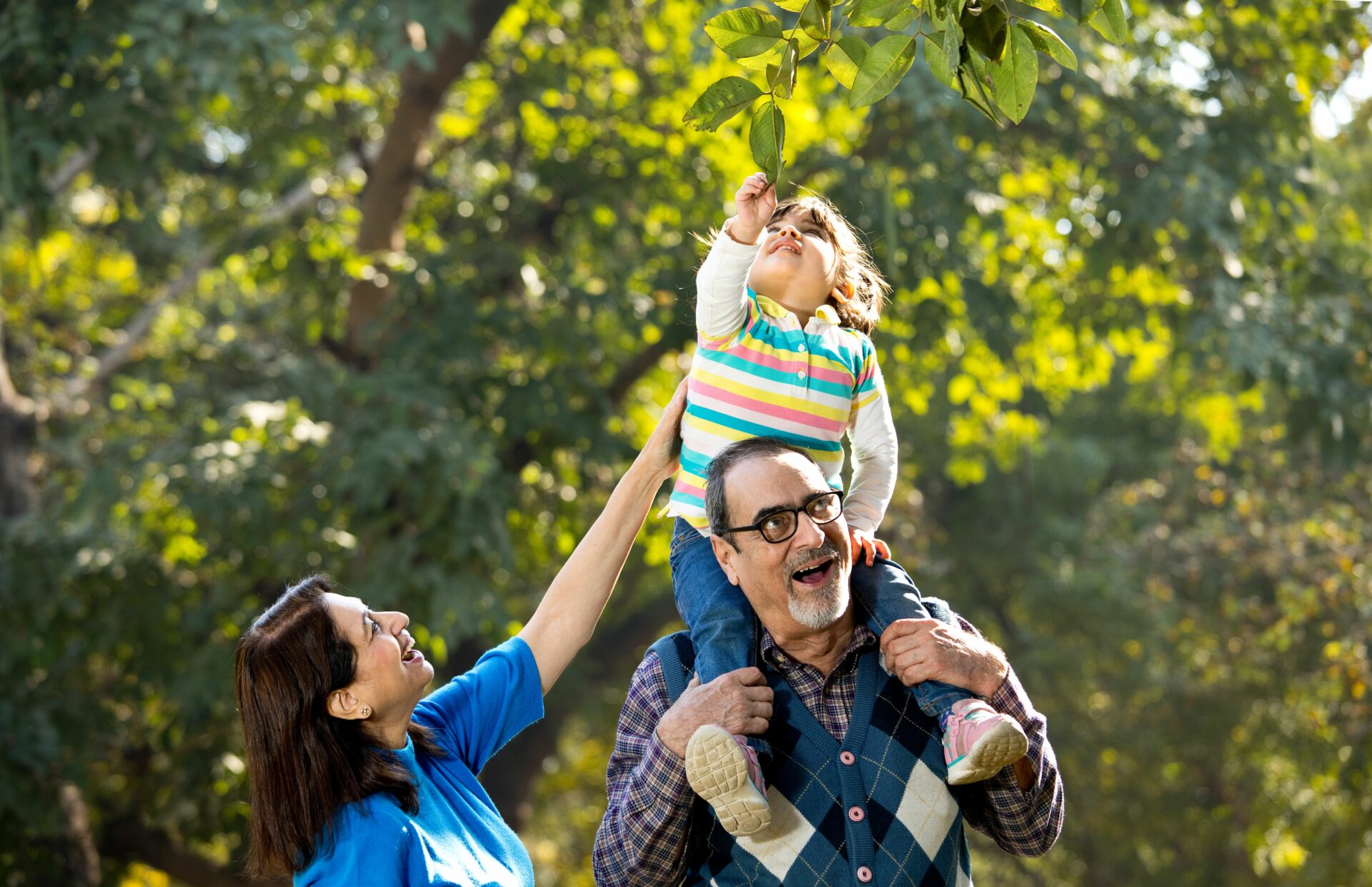
The importance of children having contact with nature in the company of family
Despite the importance of contact with nature provided by schools, it’s crucial to recognize that family experience in nature offers an even greater range of benefits, especially due to multi-generational interaction. When children have the chance to explore nature in the company of parents, grandparents, and siblings, the dynamics between different age groups enrich the experience in a unique way.
The presence of members of the primary family nucleus creates an environment of support and security, where little ones feel more comfortable exploring and experimenting, resulting in precious moments of shared learning and fun. Additionally, this diversified coexistence not only strengthens family bonds but also facilitates the exchange of conversations with different viewpoints about environmental preservation, stimulating a joint commitment to protecting the planet for the future, for the well-being of future generations.
Connecting children to nature: an investment in the future
Children’s contact with nature is not a mere whim, but rather a necessity for their healthy and balanced development. Promoting access to green spaces, encouraging outdoor play, and integrating environmental education in schools is investing in the future. We are cultivating healthier, more conscious generations, connected with the environment and prepared to face sustainability challenges. How about starting next weekend? Plan a park outing, a visit to a community garden, or plant a seedling at home. Small actions, added up over time, can make a big difference in children’s lives and the planet’s future.
Things the Way Family love to pack in their suitcase:
Gate
Eletronics for the travel: smartphone, drone, câmera, charger,…
Destiny
UV clothes, bikinis, caps, diving goggles, snorkel mask and other accessories…

